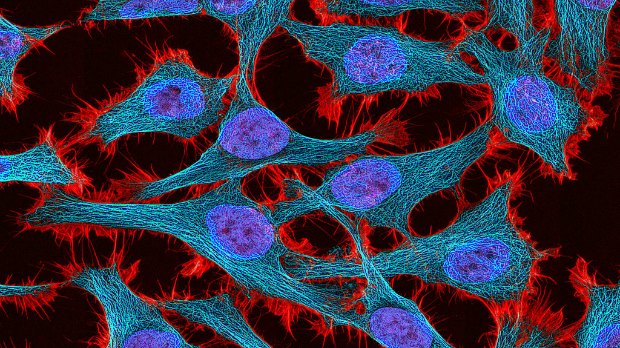 WIKIMEDIA, NATIONAL INSTITUTES OF HEALTH (NIH)Cell line misidentity is a pervasive problem in life sciences, with contaminants (HeLa, in many cases) often masquerading as other cell types. Despite years of drum-banging by government agencies, nonprofit organizations, academic institutions, and private companies on the importance of cell-line validation, a new survey finds less than half of researchers heed the advice.
WIKIMEDIA, NATIONAL INSTITUTES OF HEALTH (NIH)Cell line misidentity is a pervasive problem in life sciences, with contaminants (HeLa, in many cases) often masquerading as other cell types. Despite years of drum-banging by government agencies, nonprofit organizations, academic institutions, and private companies on the importance of cell-line validation, a new survey finds less than half of researchers heed the advice.
“The failure to authenticate cell lines is still not an impediment to publication or to obtaining research funding,” Leonard Freedman, the lead author of the survey and the president of the Global Biological Standards Institute (GBSI), said in a statement sent to The Scientist. “A systematic approach by the entire biomedical research community that ensures routinely documented cell authentication is needed to resolve this global problem. In its absence, the accuracy of published research using cell lines is in question.”
Freedman and his colleagues surveyed several hundred life scientists on their cell line handling protocols. Slightly more than half (52 percent) of the respondents said they never validated their cell lines, citing cost, time, and concerns it would delay research. Perhaps not surprisingly, then, only ...



















